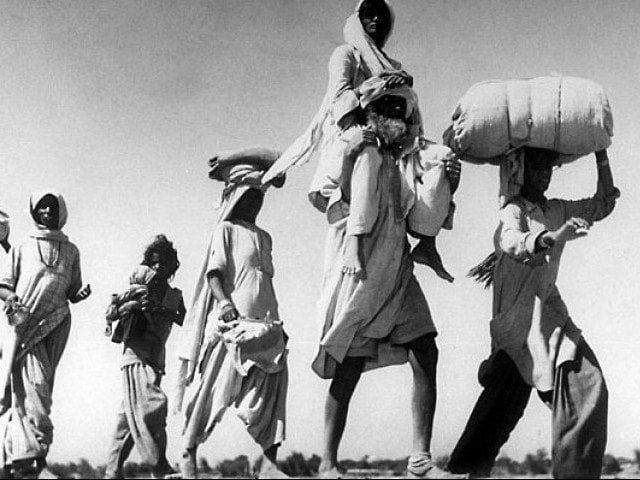Spirit of patriotism: 1947: a tale of independence
91-year-old freedom fighter says people should respect the sacrifice of thousands

PHOTO: EXPRESS TRIBUNE
While sharing his experiences with The Express Tribune, he recalls being a young a man of 20 when Pakistan came into existence. I used to work with my father in the fields at that time.” Much of his spare time was spent playing kabbadi when Quaid-e-Azam Muhammad Ali Jinnah and other Muslim League leaders started the Pakistan Movement. He recalls that the two-nation theory was gaining momentum during that time.
Green independence day: Trees planted in a joint ceremony at KMU
“I also took part in the revolution within our area and convinced people to join the independence movement.”
He says a large number of Hindus lived and coexisted in harmony with Muslims. “Our ancestors have dwelled in the area for a long time. There were also many Hindus who ran different businesses.”
However, he recalls some occasions when Muslims and Hindus would be at loggerheads. “Hindus used to lend money to people on interest and sometimes people would have to sell their properties to repay the loan. If someone failed to repay, they would grab their property and sell it.”
He points out that he and his fellows supported the two-nation theory as Hindus and Muslims had their own unique identities.
“After partition, Sikhs and Hindus killed thousands of innocent people. Trains carrying migrants were filled with bodies. We wanted to take revenge for the killings, but the elders of the area kept us in check,” he says.
He mentions that hundreds of migrants, including his family, reached Pakistan safely under the supervision of Nawab Sir Sadiq Muhammad Khan Abbasi and the state army. “Today’s youth and leaders should keep in mind that thousands of lives were sacrificed for our separate identity. We should respect it so that the whole world respects us,” Haji Bahar remarks.
Sharifs cut cake to celebrate Independence Day behind bars
His son-in-law Aashiq Hussain tells The Express Tribune that Bahar Khan always shares stories from the time of partition. He adds that the enthusiasm with which these tales of yore are narrated proves to be an engaging experience for those in attendance. “He has a great personality and grabs the attention of everyone while narrating stories from the independence movement,” he said.
Meanwhile, Bahawalpur resident Parveen Akhtar says her father was part of the army at the time of partition. She reveals that her father’s first wife was killed by Sikhs when migrating to Bahawalpur at the time of partition. It was only later that he married Parveen’s mother. “Whenever my father shares experiences of those days, my eyes well up with tears,” she says.
Published in The Express Tribune, August 15th, 2018.



















COMMENTS
Comments are moderated and generally will be posted if they are on-topic and not abusive.
For more information, please see our Comments FAQ